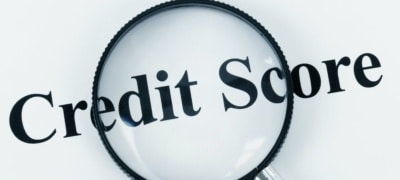The term credit can mean many things. For most people, it is the ability to borrow today and pay later. The idea of “credit-worthiness” defines our personal finances, and reaches out to all parts of our financial lives. Credit can be an accounting term. You can talk about credit cards, your credit history, your credit score, or the three credits you got in college for taking Bowling. This page is the credit nerve center of ThinkGlink.com. From this page you can learn more about what credit means and how having good, bad, or mediocre credit affects your personal finances.
Who Has An 850 Credit Score And How Do You Get One?
Credit scores, on the scale assigned by FICO, range from 300 to 850. Who has an 850 credit score and what canyou do to get one? Less than 1 percent of the population has a credit score above 800, so it's very unlikely you will have an 850 credit score. However, if your credit score is above 720, you will probably still receive the best rates. Watch more credit and identity theft videos from Expert Real Estate Tips to learn how to raise your credit score.
Bankruptcy Doesn’t Change Home Ownership
A women had owned a home with her boyfriend prior to falling ill and her boyfriend filed for bankruptcy. The boyfriend claims she no longer is on the deed because she left. Because she didn't a quit claim deed, she should check to see if her name is still on the deed.
Credit Card Consolidation Impacts Credit Score
Does it hurt your credit score if you close credit card accounts? Credit bureaus monitor how long you've had each credit card in determining your credit score so closing a long-held credit card could have a negative impact. But if you're generally responsible with your credit cards by paying them off every month and thus not carrying a balance your credit score may not drop significantly. It's important to know your credit score when you're applying for a home loan.
How Credit Scores Impact Mortgage Applications
How do credit scores impact mortgage applications? Credit scores measure debt and your ability to pay back loans. Especially today, your credit score will determine your mortgage and interest rate. What credit score should you have and how can you improve your credit score and get the best interest rate for your mortgage? Watch this Expert Real Estate Tips segment for information on credit scores, mortgage applications, and how to improve your credit score and credit history.
Creditors Collect Assets Owned By Incarcerated Debtors
Can a creditor put a lien on your house or property if you're in jail? If a creditor is able to get a judgment against a debtor, the creditor can go after assets owned by the debtor: bank accounts, cars and real estate. Whether you're incarcerated does not matter, but most states have time limits for creditors to pursue judgments against debtors.
Credit Card Debt Balance Transfer
If you currently have a credit card with debt and a high interest rate, consider transferring the balance to a lower-interest credit card. Transferring your credit card debt will help you pay off your debt quicker, improve your credit history and increase your credit score. But remember to double-check that your entire balance has been completely cleared after transferring your credit card debt to a new card.
Don’t Close Credit Card And Protect Credit Score
Closing a long-held credit card can damage your credit score. Is there a way to close a credit card account without it affecting your credit score or credit history? One option may be to negotiate with the credit card company to switch the account number to a credit card without an annual fee.
Credit Card Companies Change Interest Rates
Learn about the business practices of credit card companies. How do credit card companies change credit card limits? What reasons do credit card companies give for changing credit card limits? How can you protect yourself when using a credit card?

